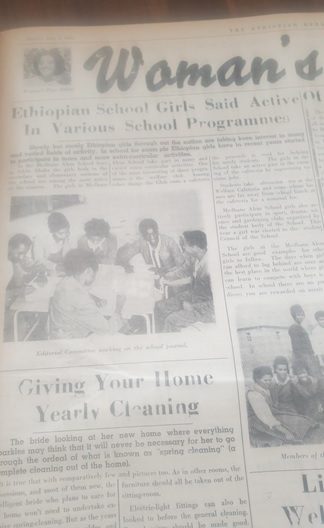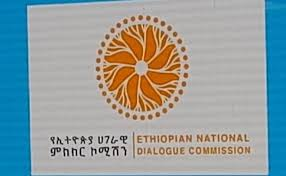
Today marks the 82nd anniversary of The Ethiopian Herald, a momentous occasion that honors not only the remarkable longevity of one of Africa’s pioneering English-language newspapers, but also its sustained commitment to shaping and sharing Ethiopia’s narrative with the wider world.
Founded in July 3, 1943, as a weekly newspaper during a time when English-language media was virtually absent in the country, The Ethiopian Herald was established with a clear vision: to serve as a reliable source of information for both local and international audiences.
And over the course of more than eight decades, the Newspaper has served as a key media ambassador for Ethiopia, providing the international community with valuable insight into the country’s rich cultural heritage, vibrant culture, dynamic political landscape, and ongoing social and economic developments.
From its earliest editions, the newspaper set itself apart by delivering comprehensive news coverage, insightful features, thoughtful editorials, and diverse opinion pieces. These contributions have helped present Ethiopia not merely as a country of ancient traditions, but as a dynamic and evolving society actively engaging with global change.
Throughout its history, The Ethiopian Herald has reported on landmark events that have shaped the nation—ranging from political milestones and economic reforms to cultural renaissances and stories of everyday resilience.
Equally important, the Newspaper has been entertaining a variety of articles focusing on the social, economic and political challenges faced by Ethiopian women as well as their success stories, targeting to raise awareness on women’s issues and address women-centric topics in the Newspaper.
Likewise, various issues ranging from inspiring success stories and public awareness initiatives to coverage of gender issues, including women’s rights, legal and economic challenges, education, to coverage of women-focused events like the International Women’s Day were featured to raise the visibility of women’s issues in Ethiopia.
The newspaper, in addition to reporting news on women’s issue, did run a weekly dedicated column, titled “Woman Page”, published every Sunday. Edited by the pioneering journalist and mentor, Sophia Yilma, the daughter of the renowned Ambassador Yilma Deressa, the column featured sections such as “Fashion News”, “Fields of Interest for Women”, and “Women in the News”.
Accordingly, the page made a meaningful contribution by raising awareness of the challenges women face, promoting their potential, celebrating their achievements and highlighting their invaluable roles of in society.
As the Ethiopia Observer stated some years ago, Sophia Yilma held with various positions at The Ethiopian Herald, rising from reporter to editor. She also managed and edited a weekly “Woman’s Page” column through which she made significant effort to shed light on the challenges faced by women, highlight their success stories and their role in their respected communities.
“When I was 19, I started doing a woman’s program with Romanwork Kassahun, the first woman Ethiopian journalist. I had tremendous admiration and affection for Romanwork, though I didn’t work for long with her. I realized that broadcasting was not my cup of tea. I preferred writing for a press. Then I joined The Ethiopian Herald.”
According to her, she was only 19 and she became both the newspaper’s youngest and first female reporter. A year later, she was appointed as editor of the ‘Women’s Page.’
“I thoroughly enjoyed being a beat reporter. I went around covering subjects that I was passionate about. I was getting all kinds of stories. Even when I got promoted to editing women’s section, I continued going around, interviewing professional women, doctors, nurses, fashion designers, artists, vocalists. I also reached people who were not so educated, not so privileged, daily laborers, small traders on the street. It was always to do with what was in their heart,” she said.
During her time at the Herald, Sophia wrote numerous articles, including those for her dedicated page, which in turn, captured the attention of her readers. As she uttered, at that time, she had many appreciative readers who often told her they enjoyed her writings for their simplicity, and informative values.
She added that working as a journalist, interacting with fascinating people, and learning from them each day had been a great experience, and mentioned that her stay at the Herald had been thoroughly enjoyable.
Moreover, as many have acknowledged, The Ethiopian Herald is widely recognized for its significant role in encouraging university students to write articles and express their ideas in English through the newspaper. It has also helped reinforce a culture of reading among young people and contributed to the improvement of their language skills.
Tigist Tesfaye, an Author, Lecturer, Executive Director at The Spark Valley, nonprofit organization working on young people, recalled that she began reading The Ethiopian Herald at an early age, entirely on her own.
Her reading journey started with counting and sounding out the letters in headlines and captions. Over time, she progressed to reading articles, editorials, and eventually the features section. At that stage, she said, The Ethiopian Herald was more than just a news source—it served as her English tutor. It introduced her to vocabulary that her schoolbooks hadn’t yet covered and to unfamiliar but intriguing sentence structures. She remembered often pestering her father with questions about meanings.
She credited The Herald Newspaper for playing a major role in her early English language development, describing it not only as a newspaper, but also as a classroom that arrived regularly with her father.
Indeed, The Ethiopian Herald has made a significant contribution to both amplifying women’s voices and fostering the improvement of language skills among its readers. Through dedicated sections like the “Woman’s Page,” it has been and still providing a platform for women to share their views, address social issues and celebrate their success stories.
At the same time, the newspaper served as an informal but powerful educational tool, especially for young readers and university students, helping to enhance their English language proficiency and encouraging a lifelong habit of reading and critical thinking. Extending beyond its role as a news outlet, its influence has been profound in shaping minds, empowering individuals, and nurturing a culture of learning and self-expression.
BY STAFF REPORTER
THE ETHIOPIAN HERALD THURSDAY 3 JULY 2025





